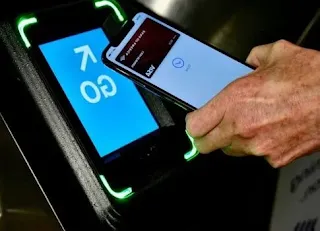What is difference between NEFT RTGS and IMPS?
A-Choose Specialist Providers:-
B-Understand Exchange Rates:-
C-Avoid Intermediary Bank Fees: -
D-Check Your Bank’s Policies:-
Information Required for transfer of Funds
Amount to be remittedAccount no. to be debited
Name of the beneficiary bank
Name of the beneficiary customer
Account no. of the beneficiary customer
Sender to receiver information, if an
Plan your transfers in advance to avoid rush fees.
Remember to compare options, read the fine print, choose the most cost-effective method for your specific needs.
Some important links-
(1) International Bank Transfer Fees and How to Avoid Them 20 https://www.exiap.com/guides/avoid-bank-international-wire-transfer-fees.
(2) How to avoid recipient bank fees on international money transfers. https://moneytransfercomparison.com/intermediary-and-beneficiary-bank-fees-avoid-paying-more-than-you-should/.
(3) Foreign Transaction Fees: What Are They & How To Avoid Them – Forbes. https://www.forbes.com/advisor/credit-cards/foreign-transaction-fees/.
(4) How to Avoid Wire Transfer Fees: Full Guide + Low Cost Options. https://monNEFT, RTGS, and IMPS are all electronic fund transfer systems in India, but they differ in terms of speed, transfer limits, and availability:
-Table-
Speed:-
1-NEFT (National Electronic Funds Transfer): NEFT transfers are not real-time. They are settled in batches throughout the day, typically taking up to 2 hours or even a maximum of two working days to reflect in the beneficiary’s account. RTGS (Real-Time Gross Settlement):
2-RTGS transfers are the fastest option. The money is credited to the beneficiary’s account instantaneously, on a gross basis (transaction by transaction).
3-IMPS (Immediate Mobile Payment Service): Similar to RTGS, IMPS transfers happen in real-time, crediting the beneficiary’s account within seconds.
Transfer Limits:-
NEFT: - NEFT has lower transfer limits compared to RTGS and IMPS. The specific limits may vary depending on your bank, but generally start around ₹10,000. RTGS: RTGS deals with larger transfers. The minimum limit is generally ₹2 lakh (₹200,000) and can go up to ₹2 crore (₹20 million) depending on the bank. IMPS: IMPS typically has lower limits than RTGS but higher than NEFT. Limits can vary by bank, but generally range from ₹2 lakh to ₹5 lakh (₹200,000 to ₹500,000). Availability: NEFT and IMPS: Both NEFT and IMPS are available 24/7, including weekends and bank holidays. RTGS: RTGS operates only during banking hours on weekdays (typically 8:00 AM to 4:00 PM).
Choosing the right option depends on your needs:-
- For urgent transfers: Use RTGS or IMPS for instant fund transfer. For non-urgent transfers with lower amounts: NEFT is a suitable option. Additional factors to consider:
- Charges: Banks may levy charges for using RTGS and IMPS, while NEFT charges are generally lower or even free for some transfers.
- Account details: NEFT and RTGS require the beneficiary’s bank account details (account number and IFSC code). IMPS may allow transfers using mobile number and MMID (Mobile Money Identifier) in some cases. The maximum amount you can transfer depends on the specific fund transfer method you choose and your bank’s policies.
Type Minimum Maximum RTGS Rs.2 Lakhs Rs.10 Lakhs NEFT No Minimum Rs.10 Lakhs - What is the minimum/maximum amount for RTGS/NEFT transactions under Corporate Internet Banking?
Type Minimum Maximum
(per transaction)Maximum
(per day)RTGS Rs.2 Lakhs Saral - Rs.10 lakhs
Vyapaar - Rs.50 lakhs
Vistaar - Rs.2000 croresSaral - Rs.10 lakhs
Vyapaar - No Limit
Vistaar - No LimitNEFT No Minimum Saral - Rs.10 lakhs
Vyapaar - Rs.50 lakhs
Vistaar - Rs.2000 croresSaral - Rs.10 lakhs
Vyapaar - No Limit
Vistaar - No Limit
Here are some guidelines:
- NEFT (National Electronic Fund Transfer):NEFT has no upper limit for individual transactions. However, some banks may impose a daily or per-transaction limit. Check with your bank to determine the exact limits applicable to your account.
- RTGS (Real-time Gross Settlement): RTGS is typically used for large transactions.
- The minimum amount for RTGS is ₹2,00,000 (Indian Rupees Two Lakhs). There is no upper limit for RTGS transactions. IMPS (Immediate Payment Service):
- IMPS allows instant transfers 24/7. The maximum amount varies based on your bank’s policies. It can range from ₹1,00,000 to ₹10,00,000 per day. Some banks may have different limits for mobile banking and internet banking.
- Instant Money Transfer (IMT): IMT allows cash transfers without a bank account. The maximum amount depends on the bank and the specific IMT service. It’s usually limited to a few thousand rupees.
- ECS (Electronic Clearing Service): ECS is used for recurring payments. The maximum amount depends on the purpose of the transaction (e.g., salary credit, utility bills, etc.). Remember to verify the specific limits with your bank to ensure accurate information for your account.


